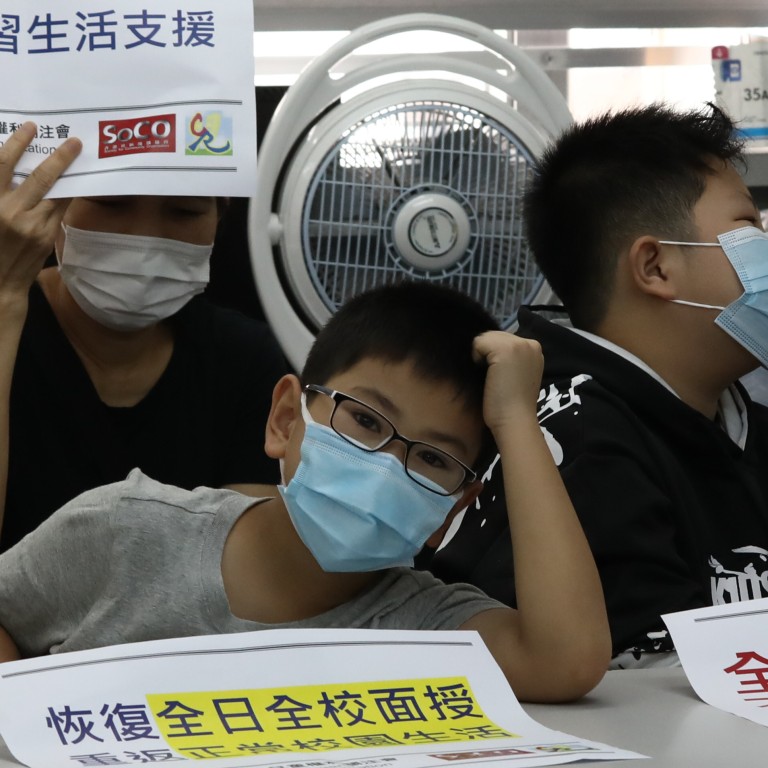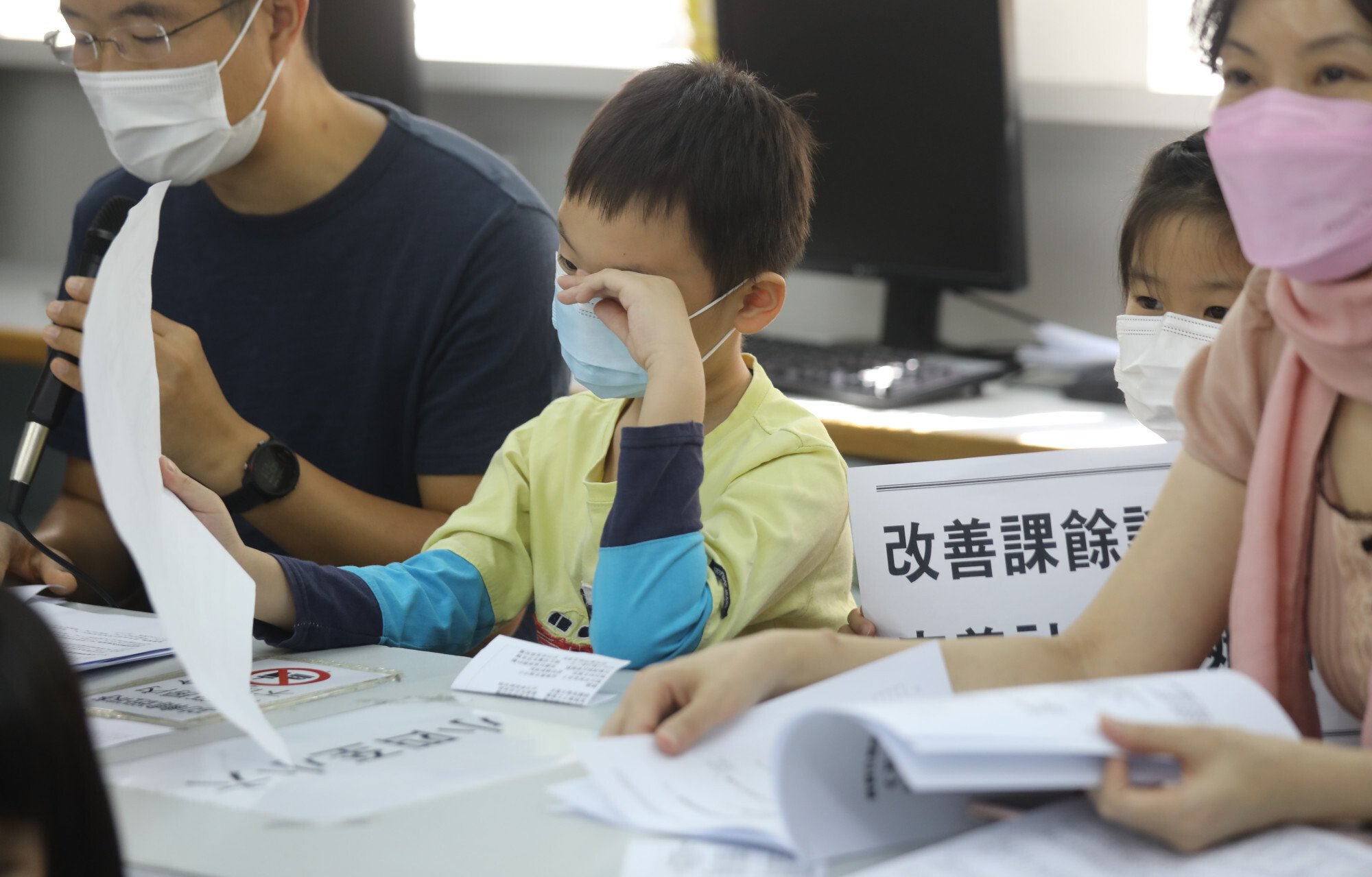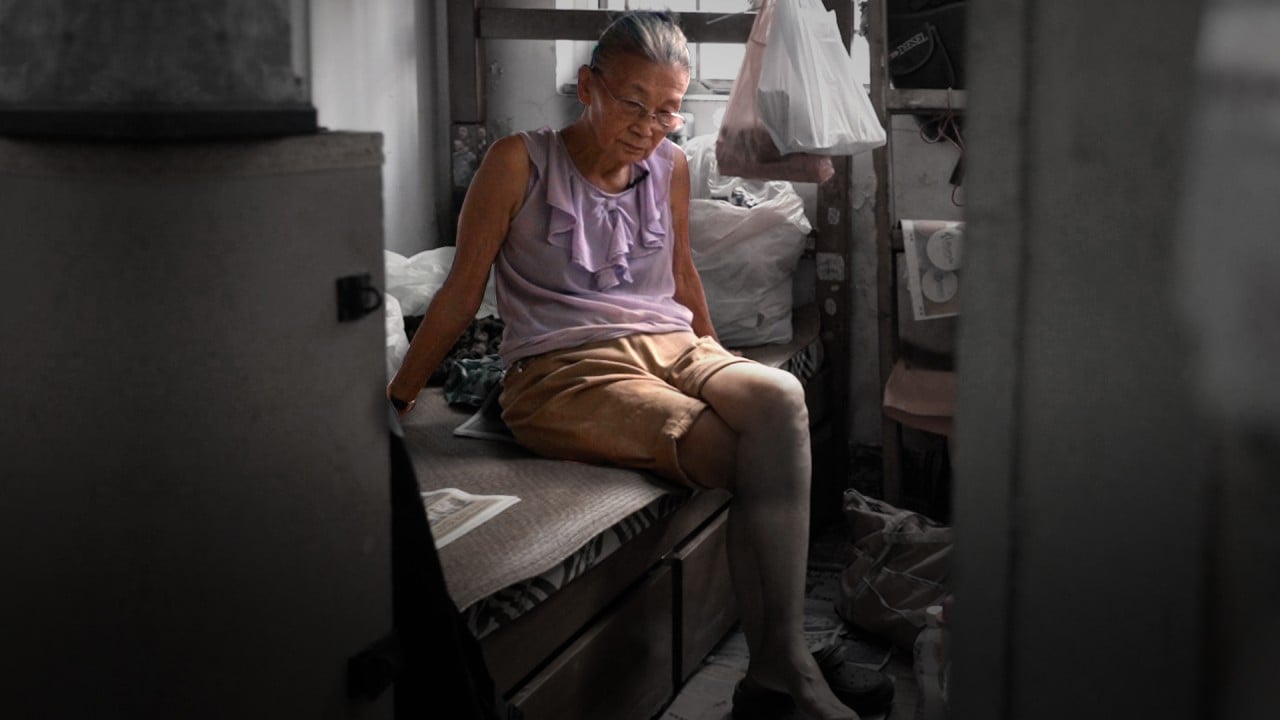
For Hong Kong’s poor children, ‘home work’ means cooking, cleaning, caregiving and earning money for the family
- As poverty rate hits 12-year high, experts voice concerns for 274,900 children from poor homes
- Parents struggling to make ends meet rely on children to help at home, need more support services
Ming* has been spending an hour a day over the past six months collecting discarded cardboard on the streets of Sham Shui Po. The most the 15-year-old earned in a week was HK$25 (US$3.20) for 5kg.
The older child of a divorced 39-year-old cleaner, he prepares lunch for his 10-year-old sister and tutors her.
“When I think of how hard my mother works, I think it’s all right to help out a bit,” said Ming, who is in Secondary Three.
“There are people who ask, ‘Why are you gathering cardboard at such a young age?’ I think it’s OK to help my mother when she earns so little.”
Ming is among 274,900 Hong Kong children aged under 18 found living in poverty in 2020, according to this year’s Poverty Situation Report by the government.
The poverty rate of 23.6 per cent meant 1.65 million people, or more than one in five Hongkongers lived in poverty, a 12-year high.
The poverty line is drawn at 50 per cent of the median monthly household income in the city before taxation and government policy interventions, including welfare allowances for the elderly and poor families.
That means an individual with a monthly income of HK$4,400 or less falls below the poverty line, whereas a three-person family is considered poor if the total household income is HK$16,000 or less.

A survey by the Society for Community Organisation (SoCO) between June 2020 and September this year revealed that 80 per cent of 201 poor children aged between three and 17 had to do housework or look after their family members.
Nearly a third spent more than eight hours a week helping at home, and nearly a fifth more than 16 hours a week. Their parents were either at work, ill or had to return to mainland China to renew their visas.
The survey found that 57 per cent of children took care of family members including bathing or feeding them, and nearly one in 10 sold waste paper and cardboard to help their families make ends meet.
Hong Kong poverty rate hits 12-year high in 2020, government figures show
Children left exhausted, helpless
The survey found that children who spent excessive time on housework said they felt exhausted, helpless or stressed, and had attention issues and muscle aches. They did not have enough rest, or lacked time or energy to play and meet friends.
SoCO deputy director Sze Lai-shan said children could help with household chores, but too much work could be a problem.
“We sometimes see these children quitting school because they have to make money for their families, or they are absent from our [extracurricular] classes because they have to cook for their younger siblings or take care of sick family members,” she said.

Despite the family circumstances, she felt parents needed to be considerate about the demands placed on children.
“The family has to nurture the children and make sure they have a future in society so that they can contribute to the family in future,” she said.
Despite the situation many poor children were in, only slightly more than a third sought help, such as after-school tutorials or at integrated family service centres and after-school care services.
Sze said many families simply did not know where to get help, and suggested the government set up an assessment mechanism to identify underage carers and their needs, refer them to social services and set up a support centre for them.
The older siblings, who are very young themselves, may need to look after younger ones. That burden can be quite heavy
The survey also indicated a shortage of childcare services that meet the needs of poor families with working parents. Many mothers said they could not apply for the services because of a lack of places.
“The places for the neighbourhood support childcare project are very limited,” Sze said. “Given the low salary for nannies, the government cannot hire enough for the project. Most after-school care services are also closed during the holidays.”
As a result, parents had no choice but to depend on their children to help at home.
“The older siblings, who are very young themselves, may need to look after younger ones. That burden can be quite heavy,” Sze said.
Not enough childcare places
The Children & Family Services Centre in Mong Kok, operated by the Hong Kong Society for the Protection of Children, provides after-school care for 72 youngsters aged under 12.
Its director, family therapist Susan Choy So Suk-yin, said the government reduced the charges of childcare services, but other needs of the families were overlooked, creating a gap.
“The government requires us to open the centre from 3.30pm to 7pm. But the children have half-day school now and their parents have to work,” she said. “They will be left unattended from 12.30pm to 3.30pm. And what about their lunch?”
The centre now provides school pickup services, lunchboxes and group activities for children who arrive before 3.30pm.
Coffin cubicles, caged homes and subdivisions … life inside Hong Kong’s grim low income housing
Choy, who sits on the Commission on Children, a government advisory body, said more services were needed to help these families
She said it would help to expand the Neighbourhood Support Child Care Project, which offers full-day home or centre-based childcare services to those under the age of nine.
“It is the most flexible service as the nannies also work on Sundays, when childcare centres are closed,” she said.
She suggested the government offer local domestic help services to children who have to look after chronically ill parents, adding that she would bring up the matter to the commission.
David Chan was six when he started picking up cardboard with his mother five years ago, earning just HK$3 to HK$10 for an hour’s toil each day.
He and his divorced mother Mrs Chan, 45, now survive on welfare payouts of HK$5,000 a month.
Now 11, David no longer collects cardboard, but still does his household chores and cares for his mother, who is unable to work because of episodes of lower back pain that last for a few months each time.
“I can walk but with a limp, but it is hard for me to roll over in bed,” Chan said. “Sometimes, if I need to go to the washroom in the middle of the night, I have to wake my son and ask him to get me out of bed.”
David said: “My mother and I depend on each other. I love my mother.”
*Name changed at interviewee’s request


